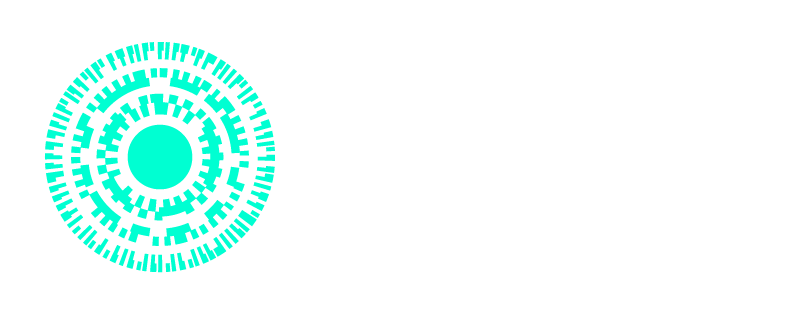Over recent years, fashion and luxury consumers have become increasingly aware of the environmental impact of the textile industry. In response, brands are stepping up to the demand for more sustainable products with circularity designed into the life cycle. Blockchain offers a way for brands to provide unprecedented transparency into supply chains and thus meet evolving customer expectations. There are also many benefits for brands in using blockchain even earlier in the product life cycle to increase transparency in supply chains.
Most sources are in agreement that during the pandemic, there was a fundamental shift in attitudes towards the environment and sustainability. While the reasons for this may be arguable, the outcome isn’t – consumer buying habits are shifting. Vogue Fashion reports that by 2021, 69% of those polled in a global survey by publisher Condé Nast said sustainability was an important factor when making a fashion purchase, up 4% from the previous year. However, the prevailing sentiment was that consumers want their favoured brands to become more sustainable, rather than switching to more sustainable alternatives. Therefore, brands rightly see this as an opportunity to deliver.
Furthermore, the imperative is no longer optional. In some cases, regulators are imposing new rules on manufacturers to become more transparent in their sustainability declarations. For instance, French lawmakers have passed a bill that will require a dedicated product label for every item of clothing that details its carbon footprint from each stage of the manufacturing process.
As such, brands are now placing unprecedented scrutiny on their supply chains, and finding ways to introduce the level of transparency that consumers and lawmakers are demanding. However, transforming supply chains to any degree is no small undertaking, considering the complexity of global supply and logistics.
Yet much of these challenges and operational barriers can be attributed to one problem – traceability. When we look at the entire product life-style from raw material to customer purchase, there’s a huge amount of information asymmetry between the various parties involved in the many supply chain transactions along the way. If things go wrong at any touch point, it can be difficult to discover and manage what’s happening in real time. Behind the scenes, much effort is spent on auditing and reconciliation after the fact – causing strain and frustration on both brands and consumers alike.
Using Blockchain to Enhance Luxury Supply Chain Traceability
Blockchain introduces a shared ledger that can be used as a real-time source of fact between parties in the supply chain. Assets, which could include inventory or credit notes, for instance, are represented on the blockchain to facilitate transactions between parties. RFID tags, NFC chips or QR codes can make the connection to physical assets where needed.
Each party in the supply chain is involved in validating ledger transactions, which are added to the blockchain as a permanent, tamper-proof chronology of orders, shipments, invoices, and payments. Aura Blockchain Consortium enables supply chain transparency by sharing all the information about the luxury item with each new owner – and it is this consumer-access utility that is the most transparent addition to long-standing supply chain record keeping. From design to raw materials, manufacturing, maintenance passport, brand DNA, carbon footprint and much more, this technology allows customers to make educated decisions based on increased knowledge and transparency.
Unlike the permissionless nature of the technology that drives Bitcoin and Ethereum, meaning they are completely open to the public, supply chain blockchain networks tend to be closed and not interoperable, meaning that data isn’t public and only members with the necessary permissions have access to the ledger. Importantly, details of the product are only shared when purchased and are not publicly available on an open ledger. And, thanks to the easy transfer of ownership on the blockchain, in the case of gifting and reselling, the new owner will also have access to the same level of information. In short, whoever holds the product will hold access to all the information related to the product.
Luxury brands can realize substantial benefits from joining a dedicated supply chain network like Aura Blockchain Consortium. Thanks to a shared, real-time point of truth, blockchain reduces operational errors like missing stock or wrong inventory data. It also eliminates the need for paperwork, recording everything digitally and in duplicate across the whole network, ensuring a secure and trustworthy audit trail. As such, the audit burden is also greatly reduced because any network participant can simply view the data on the blockchain whenever necessary.
For consumers, across industries there is this growing demand for complete information on the product life cycle – the materials, where products come from, its sustainability and the conditions in which they were produced. With blockchain technology, it makes retrieving this information an easy solution where consumers can have it with a scan of a QR code for example. This level of transparency provides the customer with a level of knowledge which gives them back power and holds organisations accountable, while building trust between both parties.
While there has been much improvement in supply chain transparency, according to the Fashion Transparency Index 2022, with the 250 of the world’s largest fashion brands and retailers achieving just 24% on transparency. Blockchain technology offers a turn-key solution to give full transparency to the consumer and ensure that the high expectations the consumers rightly demand are being met.
Curtailing the Counterfeiters
In the luxury industry specifically, there’s also a huge opportunity to address the issue of counterfeiting in the supply chain. The “ghost shift” method of stealth production, where suppliers appropriate a brand’s IP to make goods for sale on the grey market, is still a common route to market for counterfeiters.
With blockchain, a brand can assign a digital twin in the form of an NFT on the blockchain to each of its newly manufactured products thus creating an immutable link between the product and its digital representation from the beginning of its life.
Eventually, products circulating without their corresponding token will be self-evidently fake. Similarly, this can be done for products like diamonds, a product with high rates of counterfeiting, in order to ensure that every diamond is carrying the proper certificate so an owner or seller can validate its authenticity.
An environment in which all circulating products have a token of authenticity creates an unparalleled opportunity for brands and consumers alike in the booming resale markets. Due to the drive for sustainability, sales of secondhand apparel is set to double in size over the coming years, and introducing traceability with blockchain gives brands a much greater role to play in facilitating this growth.
Consumers can navigate the resale markets with more confidence knowing that products can be easily authenticated and they aren’t buying fakes. Blockchain also enhances the relationship between the secondhand buyer, the product, and the brand. The NFT shows when the item has changed hands, providing valuable CRM data to the brand and allowing them to invite the resale buyer to become part of their clientele. Brands can even program NFTs to take an automatic commission from the resale of their products.
Aura Blockchain Consortium’s blockchain network already comprises members including LVMH, Prada Group, Cartier, part of Richemont, OTB Group, and Mercedes-Benz. Together, our members are using Aura Blockchain Consortium to increase the transparency of their supply chains.



